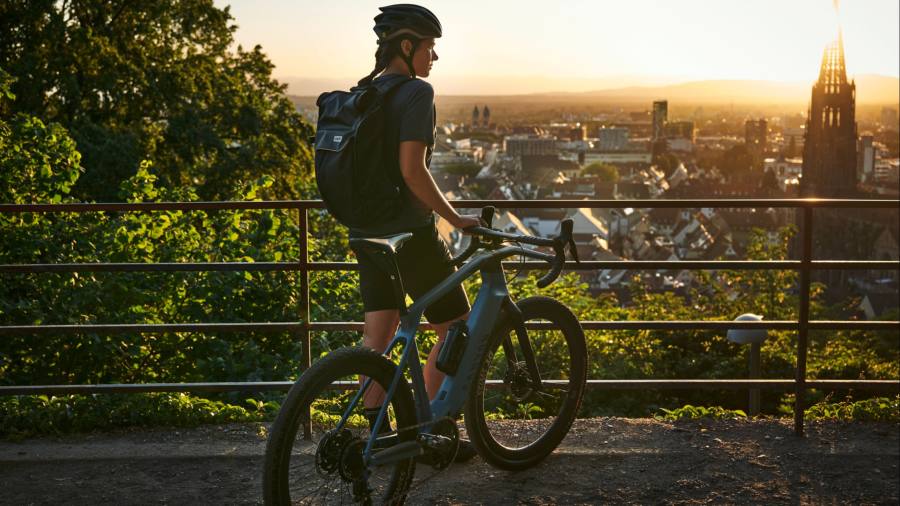
One of Europe’s biggest bicycle makers wants to convert motorists with cargo bikes and what it calls the cycling equivalent of an SUV as it aims to double sales of city bikes by 2025, its chief executive said.
Canyon Bicycles — based in western Germany and worth €858mn, according to its majority shareholder Groep Brussel Lambert — is known for fast, lightweight road and mountain bikes, and generated €475mn in sales last year.
But Nicolas de Ros Wallace, a former Nike manager who became chief executive of Canyon in March, now sees sturdier models better suited for shopping and other city dwellers’ needs as “a key priority”. He wants to more than double the share of urban bikes among Canyon’s total sales to 20 per cent by 2025.
“We see huge growth in urban cycling”, de Ros Wallace told the Financial Times, pointing to “all the cities moving into [sustainable] mobility and building bike lanes” as well as rising fuel costs and people’s desire to live more active lifestyles.
Since the pandemic began, cycling has been booming in the western world, with sales of conventional and electric bicycles in Europe rising 7.5 per cent to a record €19.7bn last year, according to the Confederation of the European Bicycle Industry.
“If you live in a city and want to get from A to B, you don’t need a car,” said de Ros Wallace, arguing that even a premium bike was “cheaper, more sustainable, you don’t pay insurance and you can park it anywhere”.
Since April, Canyon has been selling a model that the chief executive said “is like [an] urban SUV” for city dwellers “who love cycling”. At a retail price starting at €4,199, the Pathlite SUV — a nod to sports utility vehicles, which are popular among motorists but seen as a safety risk by cycling activists — comes with wide tyres for poor road surfaces, a powerful motor and a rack for carrying luggage.
Canyon is planning other new models for urban living, most of them with a motor and a battery, over the next three years, including a cargo bike for people “who want to carry [their] kids or their surfboard”, said de Ros Wallace. The group is also investing in digital apps that can advise on cycle routes, safety and maintenance.
Canyon’s growth over the past few years has been hindered by a crippling shortage of key bike parts, caused by rising demand and problems in global supply chains. Many bikes on Canyon’s website are sold out, with some popular models only becoming available between April and July 2023.
While the shortages were slowly improving, de Ros Wallace expected that the company would need one more year to fully fix the issue. “We are having weekly conversations with [key suppliers] and it’s getting better, but not at the speed that we would love to [see],” he said.
Over the first nine months of 2022, Canyon sales increased by 36 per cent to €503mn compared with a year earlier.
Earnings before interest, tax, depreciation and amortisation rose by a quarter, bringing the ebitda margin to 15.2 per cent of sales, according to GBL’s half-year report.
Canyon this year won the backing of US basketball player LeBron James, who led a €30mn funding round. That came a year after GBL spent €350mn on a 52 per cent stake.